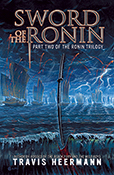I have many author friends who get burned out after writing a book-length collection of short stories or a novel. They start dreading their next project, having just toiled away for weeks or months.
“Why not cleanse your palate by writing a non-fiction book,” I’d ask. After some grumbling bout how tough it is to write non-fiction, some actually do give it a try—and they add to their published bibliography and, sometimes, their bank account.
Everyone has something they like to do, or they have some special knowledge that they think is too mundane to do anything with it. For example, I have an ancient hand-written notebook of recipes from my great-grandmother and grandmother. This was at the turn of the 19th century, before refrigeration and electricity were commonplace on farms, through the Great Depression and the first World War. They didn’t waste anything back in those days. Actually, there’s a cookie recipe in there specifically for milk that had spoiled. Yes, they are delicious and they don’t smell like rancid milk.
I’m going to take those old recipes and put them together in a period cook book, padding them out with some recipes from my dearly departed mother and my brother, Gilbert, who is quite the accomplished chef. His pumpkin cheesecake is to die for. Gilbert will be a co-author, as will the rest of the family.
I used to be in the Information Technology field for 37 years. I have a large collection of installation guides I wrote for software installation, as well as server installation and maintenance. I’ve been putting out short how-to guides under a pseudonym for a while, and combined they provide a nice revenue stream to support a charity I selected. That pseudonym is now seen as an expert in the field, even though he technically doesn’t exist.
You have plenty of things you enjoy doing, I’m sure. For example, if you enjoy being the Dungeon Master for your local Dungeons and Dragons group, consider publishing your homemade modules using one of the open, generic gaming systems. A great place to find samples is to visit DriveThruRPG.com and look for some of the freebie modules. I’ve published a couple of books back in the 1980’s with some of my unique items, creatures, traps, and modules. I have over 300 that have been used during the years I played consistently. In fact, consider designing your very own game, possibly centered around gaming systems like Savage Worlds or Pathfinder, or even one of the open-source gaming systems.
I enjoy target shooting, so I wrote a short tutorial under a pseudonym for authors who want to have additional realism added to their gun-wielding characters. I’ve also produced books on topics ranging from how authors can use QR Codes to improving your WordPress author website.
All of these are things I do anyway for fun, so by taking the time to write things down, organize them into a coherent work, and then convert and publish, I get to have another book for my revenue stream and to increase my authoritative stature in my chosen fields. Sometimes, it even brings in a trickle of funds. Enough trickles can eventually combine into an Amazon-sized river. (See what I did there?) I have also collected articles together and either used them as a giveaway on my blog (combined into PDF, ePub, and Mobi versions), or sold them for a very low price, such as 25 cents using Amazon’s price-matching system. Other times I use them as a fund-raiser for charities.
If you need a break, consider writing something non-fiction. After it’s published, you’ll feel refreshed and ready to tackle that 500-page tome of fantasy you’ve been contemplating.


